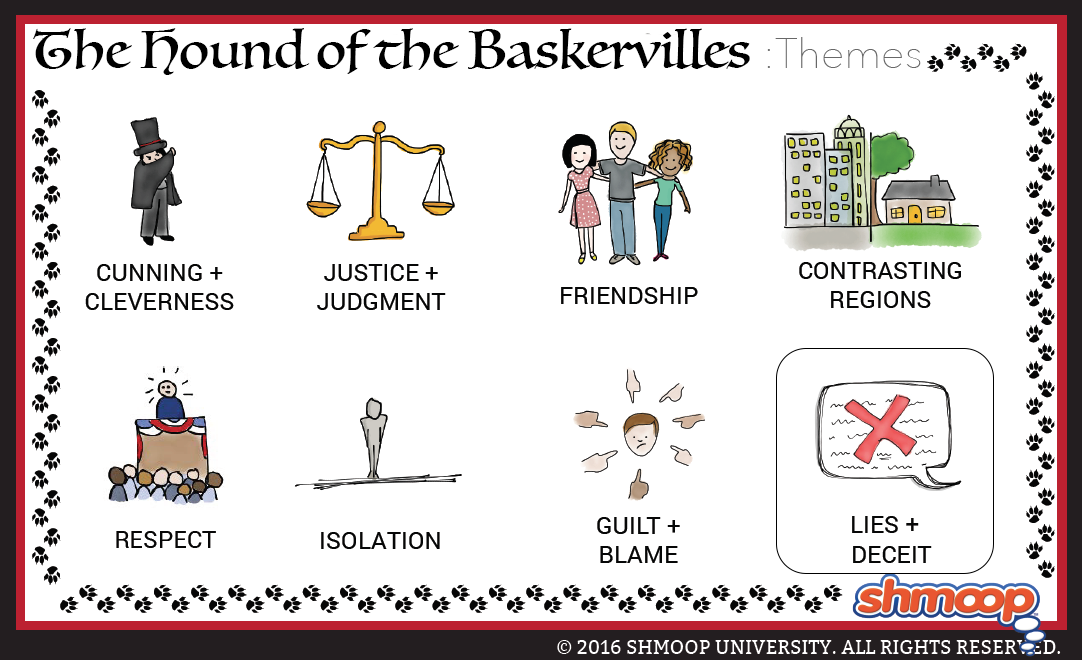 (Click the themes infographic to download.)
(Click the themes infographic to download.)
There has been murder committed at Baskerville Hall—murder most foul!—so obviously, someone in the novel is lying about it. Otherwise, who needs Sherlock Holmes? In a detective novel there are always signs that point to the truth if you read closely. The structure of the genre is built around the idea that clues will tip you off that someone's lying to you. When Watson observes the relationship between Stapleton and Beryl, he knows that there's something weird going on long before he learns the truth of their marriage. And of course, he turns out to be right.
Questions About Lies and Deceit
- Are there any excusable or understandable lies in this novel? If so, what are they?
- Besides Stapleton, what other characters in The Hound of the Baskervilles tell lies? How common is lying among the characters in this novel? What does this suggest about the overall truthfulness of people in general in the Holmes universe?
- Which memorable scenes of truth-telling does The Hound of the Baskervilles present? What makes former liars in this book suddenly tell the truth?
Chew on This
Even though The Hound of the Baskervilles is a crime novel that emphasizes the importance of the truth at all costs, lies by the Barrymores on behalf of Selden, by Watson to trick Mr. Frankland, and by Holmes to Watson introduce a moral gray area around the issue of deceit.
The fact that nearly all the characters in The Hound of the Baskervilles, from villains to heroes, tell lies at one point or another implies that deceitfulness is an essential human trait in the novel.